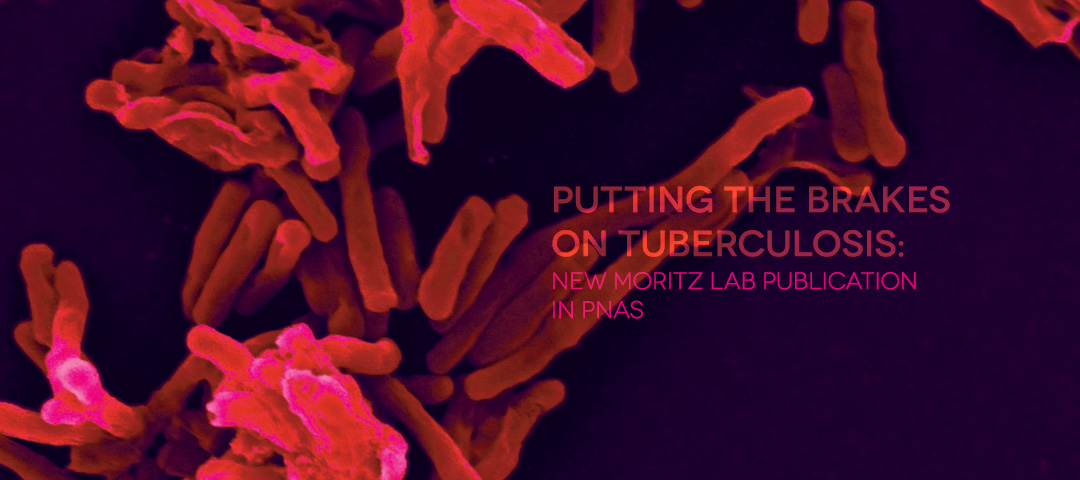ISB Researchers Identify New Protein Modification Critical to Growth of Tuberculosis Pathogen
 isbscience.org/news/2014/06/20/isb-researchers-identify-new-protein-modification-critical-to-growth-of-tb-pathogen/
isbscience.org/news/2014/06/20/isb-researchers-identify-new-protein-modification-critical-to-growth-of-tb-pathogen/
3 Bullets:
- Institute for Systems Biology and Seattle BioMed researchers collaborated and discovered a new protein post-translational modification in the human pathogen Mycobacterium tuberculosis.
- Post-translational modifications are essential mechanisms used by cells to diversify protein functions and ISB scientists identified the rare phosphorylated tyrosine post translational modification on Mycobacterium tuberculosis proteins using mass spectrometry.
- Inhibiting phosphotyrosine modified amino acids in Mycobacterium tuberculosis severely limits the growth of this widespread deadly pathogen.
By Dr. Robert Moritz
In a study published in the journal Proceedings of the National Academy of Sciences (PNAS), researchers from the Institute for Systems Biology and Seattle BioMed identified the protein phosphotyrosine post-translational modifications critical to the growth of Mycobacterium tuberculosis (Mtb), a pathogen that causes the highly infectious disease tuberculosis (TB). Post-translational modifications are molecules attached to proteins that can influence their functions or trigger certain events.
Journal: Proceedings of the National Academy of Sciences (PNAS)
Title: Mycobacterium tuberculosis supports protein tyrosine phosphorylation
Authors: Ulrike Kusebauch, Corrie Ortega, Anja Ollodart, Richard S. Rogers, David R. Sherman, Robert L. Moritz and Christoph Grundner
TB is an old but re-emerging global health threat caused by Mtb. With one third of the world infected and about 9 million new cases of active disease and 1.7 million deaths annually, Mtb is a global health emergency with the largest burden of the disease affecting the developing world. With its infective synergy with the AIDS virus, increased prevalence due to emigration from Mtb-endemic countries, and the recent surge of multi-drug-resistant TB cases, Mtb maintains its position as a top public health threat in the developed world as well. The need for improved understanding of Mtb and factors promoting its success in humans is urgent.
Despite global research efforts, tools to combat Mtb are universally outdated and overmatched. The current tolerated class of Mtb drugs reached the market in the 1960s and a single drug for multi-drug resistant TB was released in 2013, although it comes with a higher risk of mortality. Treatment of TB takes at least six months, and drug resistance is rising. Vaccination against Mtb is widespread but it is inadequate for disease control. Developing targets for new and safer drugs against Mtb is a worldwide priority and through the verification of new protein functional control by rare phosphotyrosine events provides a new rich source of targets for this effort.
Reversible phosphorylation is the main signaling mechanism underlying the dynamic adaptive responses necessary for Mtb survival in the host. Phosphorylation on tyrosine is the least abundant, most labile, and technically least tractable of the cells phosphorylation events. The identification of phosphotyrosine for the first time in Mtb provides new targets to both understand the role of these events in growth of Mtb and its possible inhibition to stop Mtb and eliminate infection.
Dr. Ulrike Kusebauch, a chemist and mass spectrometry expert in the lab of Dr. Robert Moritz at ISB, collaborated with the labs of Dr. Christoph Grundner and Dr. David Sherman at Seattle BioMed to develop methods for the broad identification of phosphotyrosine modified proteins in Mycobacterium tuberculosis. Dr. Kusebauch used high-resolution mass spectrometry to analyze the protein complement of the Mycobacterium tuberculosis proteome and developed techniques to efficiently target phosphate-modified tyrosine amino acid residues to specifically identify these important modifications for the first time. In-depth analysis of these biochemicals shows that Mtb does indeed phosphorylate Tyrosine on limited numbers of proteins. We found that Tyrosine phosphorylation regulates protein kinase activity indicating potentially broad regulation of Mtb physiology by this post‑translational modification.
Link: http://www.pnas.org/content/early/2014/06/04/1323894111.abstract
About: Dr. Robert Moritz is an Associate Professor and the Director of Proteomics at ISB.





